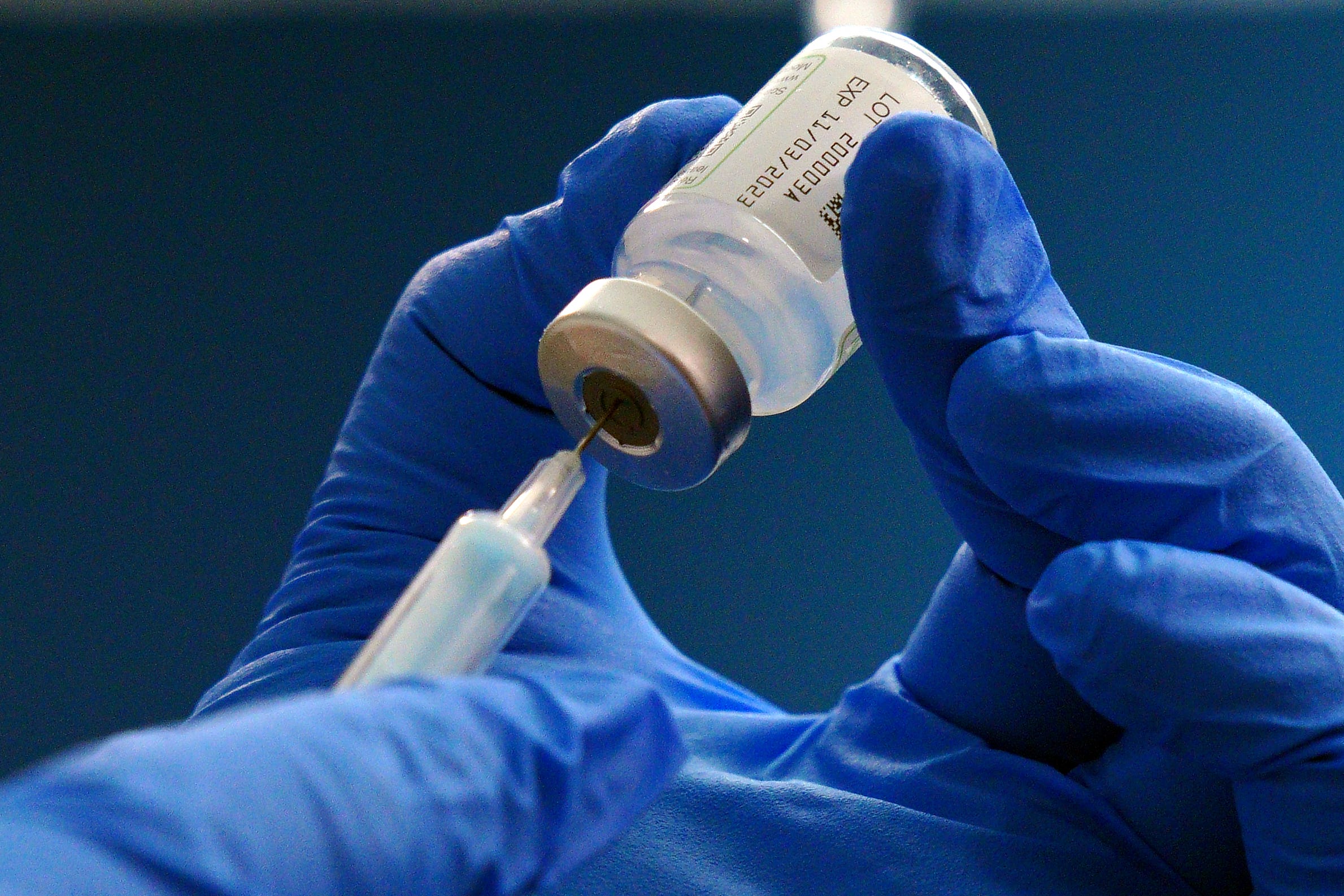Protective gene may help some dodge Covid-19 symptoms, study suggests
Researchers believe that new treatments and vaccines could be developed as a result of the findings

Your support helps us to tell the story
From reproductive rights to climate change to Big Tech, The Independent is on the ground when the story is developing. Whether it's investigating the financials of Elon Musk's pro-Trump PAC or producing our latest documentary, 'The A Word', which shines a light on the American women fighting for reproductive rights, we know how important it is to parse out the facts from the messaging.
At such a critical moment in US history, we need reporters on the ground. Your donation allows us to keep sending journalists to speak to both sides of the story.
The Independent is trusted by Americans across the entire political spectrum. And unlike many other quality news outlets, we choose not to lock Americans out of our reporting and analysis with paywalls. We believe quality journalism should be available to everyone, paid for by those who can afford it.
Your support makes all the difference.A gene variant may have helped a lucky few avoid suffering Covid-19 symptoms, according to a new study.
Scientists have found that so-called “super-dodgers” carry a gene that helps them to fend off the virus before it causes symptoms such as coughs, shivers, fatigue and other signs of illness.
It is the first evidence that there is a genetic basis for asymptomatic Covid.
Researchers believe that new treatments and vaccines could be developed as a result of the findings.
The study, published in the journal Nature, focuses on human leukocyte antigens (HLAs) — proteins found on the surface of cells which help the immune system to recognise whether a particular cell is an unwelcome invader.
The protective gene allows the immune system to recognise that an HLA found on the coronavirus responsible for Covid-19 is similar to the HLA found on seasonal coronaviruses that cause routine colds.
This means if you have the protective gene and have previously been exposed to a seasonal coronavirus, your immune system will mobilise its defensive weaponry against a Covid-19 infection, so you will not suffer symptoms.
The gene variant, called HLA-B15, is only carried by about 3,000 of the study’s 30,000 subjects, who were tracked through the first year of the pandemic.

Professor Jill Hollenbach, of the Weill Institute for Neurosciences at the University of California San Francisco, who oversaw the research, said: “If you have an army that’s able to recognise the enemy early, that’s a huge advantage.
“It’s like having soldiers that are prepared for battle and already know what to look for, and that these are the bad guys.”
The study found that people with one copy of the protective gene were more than twice as likely to remain asymptomatic, compared with people without the gene.
Meanwhile, people with two copies of the gene were more than eight times as likely to not suffer symptoms during a Covid infection.



Join our commenting forum
Join thought-provoking conversations, follow other Independent readers and see their replies
0Comments